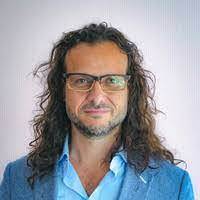Lonny Grafman is an Instructor of Environmental Resources Engineering and Appropriate Technology at Humboldt State University; the co-founder and instructor in a summer abroad, full immersion, Spanish language and appropriate technology program in Parras, Mexico; and the executive editor of the International Journal for Service Learning in Engineering. In addition, he is the President of The Appropedia Foundation, sharing knowledge to build rich, sustainable lives.
Academically, Lonny seeks ways to increase knowledge of the world through exposure and synthesis, highlighting that science, culture and language are inextricably linked. He seeks to demonstrate this connection through service-learning based education, working to improve existing conditions by leveraging local knowledge, materials, wealth and labor through transparency and stakeholder participation. Professionally, Lonny supports and develops tools to thrive, catalyzing and strengthening networks of positive change, to help us be better ancestors. Lonny is also an advisor to Thrivable.
Todd: Lonny, you are a teacher, facilitator, designer, consultant, non-profit president, international program director, and editor. What ties all these roles together?
Lonny: I love to see projects that make the world a better place manifest. The way a project manifests from inception, brainstorming, researching, creating, testing, iterating, promoting, etc. always fill me with wonder and excitement. There is no one way that it unfolds, but my favorite ways to be part of are those that are collaborative.
My different roles allow me to take part in multiple aspects of how a project unfolds . . . and they all feed back into each other to make me more effective at each. In the end, I think that for most people “roles” are exiguous boxes that don’t justly describe their capabilities.
Todd: As someone who is not just a sustainability advocate, but involved in the design and implementation of projects, what do you see as the difference between thrivability and sustainability?
Lonny: As an individual I do not see a difference. But I think that sustainability has a common connotation, especially in poor communities, that we are sustaining the status quo. Or at the maximum trying to be zero impact – minimizing our footprint. I see thrivability as engendering a sense that we are trying to go past minimizing our impact, instead aiming for a positive impact. Sustainability is about conserving resources and thrivability is about savoring them.
Todd: How does “savoring” fit into thrivability?
Lonny: Conserving is about limiting the use of our resources because it is the right thing to do. Savoring is about really enjoying the use of our resources, because it is, well, enjoyable. Access to dependable energy, clean water, healthy food, fun and connected transportation, etc… is incredible. We should all be so lucky to have it. And by lucky, I mean work hard to secure it.
Todd: What reasons do you have to be optimistic about our future? Why should we be positive?
Lonny: Every day I am surrounded by people making their world better for themselves and their descendants… striving to be better neighbors and ancestors while enjoying an improved quality of life. So it is easy for me to be optimistic because of the nature of my work. Be what you want – positive, negative or otherwise – but be part of a set of solutions.
Todd: Appropedia is a project you for which you have a high level of passion. What positive impact are you seeing from its growth?
Lonny: So many. . . My favorite is that I am seeing people make new errors instead of the same old errors on projects. I have visited rainwater catchment systems and asked where they learned to put on a first flush, and the response was Appropedia. I have seen a new level of projects from students each year as they learn from the projects of the students that came before them. Appropedia has helped provide much needed knowledge to projects all around the world. We are approaching 19 million pageviews and 150,000 edits. Now there is a source of optimism.
Todd: How can people on any corner of the globe be oriented more towards solutions, not just talking about best practices?
Lonny: They already are. A lot of the solutions are happening on small scales, by people to busy working to start documenting. I think that we need to partner the people that have the energy to discuss, document and just be on the computer, with those people that have the energy to draw, plan and get their hands dirty. Not that people can’t be both, but the more collaboration of those abilities the better.
Todd: So, we need witnesses? Storytellers? Ambassadors?
Lonny: Absolutely. If you have a lot of energy, and not much experience, talking about your ideas is great… but helping other’s document their projects can have much more lasting, tested and useful impact.
To that end, Appropedia has started a http://www.appropedia.org/Appropedia:Travel_Internships.">travel internship program. In the program, bright ambassadors head out to document effective community projects. Recently we have had two interns in Latin America. They have documented dozens of projects and techniques that have never been on the internet before. The projects (natural wastewater treatment) and techniques (e.g. testing methods for improved cookstoves) are now available for others to learn from and adapt.
Todd: Thanks, Lonny.
